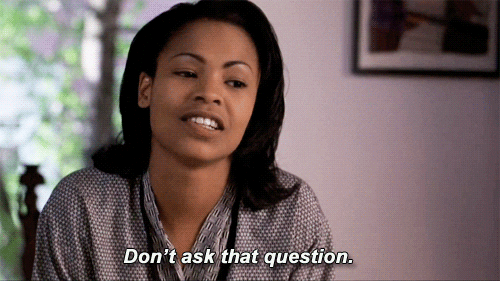The types of questions you ask applicants can have a significant impact on your ability to hire top sales talent. You have a limited amount of time with each candidate. Every question you ask counts, so make them good. Unfortunately, there are a lot of bad job interview questions that have become popular. But asking these types of questions is more of a time-waster than anything.
In this blog, Toronto sales recruiters discuss terrible sales job interview questions. We will discuss what makes a bad interview question and outline some of the worst questions to ask.
How Do I Know if a Sales Interview Question Is Bad?
The goal of asking any interview question is to learn more about a candidate. If you ask a question that doesn’t provide you with anything valuable about the candidate, then it’s likely a poor question to ask. If you consistently ask a question and get no insights from candidates, you should drop it from your question list. Replace it with a different question that helps you better understand the person on a deeper level.
Don’t Ask Anything Illegal
For obvious reasons, you should avoid asking illegal and unethical questions during the job interview process. This includes questions about age, race, religion, and sexual orientation. Asking these types of questions could cause legal issues, so steer clear of questions about these topics.
5 Terrible Sales Job Interview Questions to Avoid
Not sure if you are asking bad job interview questions? Here’s a list of job interview questions you can remove from your list:
1. What Was Your Salary at Your Current/Past Job?
Asking a sales professional about their current or previous salary isn’t going to provide you with much more information than you already know. Most people won’t actually tell you what they are making. They will provide you with a figure they want to make if you hire them.
Salary data is widely available online and most candidates are well aware of what they can command salary-wise, based on their years of experience and job grade.
Rather than asking about current salary, focus your time on asking a question that will help you better understand the candidate’s motivation and career objectives. If you can identify a top candidate, the salary won’t be an issue.
2. Describe Yourself in 3 Words
Asking candidates to describe themselves or asking them what others would say about them won’t teach you much about them. They are ready for questions like this and will provide you with a rehearsed answer. If you ask a candidate to describe themselves in 3 words, they will likely use 3 words from their resume. You gain no value in asking this question.
You are better off asking questions about how they handled past situations in the workplace. How a candidate approaches situations will tell you more about them and what you can expect from them.
3. Why Should We Hire You Over Others?
Asking a candidate to compare themselves against the unknown will not provide you with the information you are looking for. It’s up to you to compare the candidates. When asking this question, hiring managers are often looking for information about why the candidate is the best choice and how they are suited to the company.
It’s better to ask candidates about how they think they can help your company. Ask them to provide details about their skills and experience that make them an ideal fit for the job.
4. What Is Your Biggest Weakness/Flaw?
This question has worn out its welcome. No qualified candidate is actually going to tell you their biggest weakness. By now, everyone already knows how to answer this question, and they expect it to be asked. The question also fails to give you an insight into current skills and experience.
The same goes for questions about a candidate’s greatest strength. You can expect a canned answer that does not provide you with good insights that will help you know more about the candidate.
Rather than ask these questions, it’s better to focus on behaviour- and situational-based questions to help you understand how a candidate acts in different situations.
5. If You Could Do it Again, What Would You Do Differently In Your Career?
What-ifs don’t provide you with any value. Hindsight is 20/20. Hypothetical questions don’t tell you much about a candidate. Everyone runs into roadblocks during their career. Most candidates will provide you an answer with a best-case career scenario. But what does that tell you about how the candidate is qualified for this job? Not much.
You will get more value out of asking questions about career challenges and what they did to overcome them. You’ll learn more about their character, resilience, and how they react to stressful situations in the workplace.
More Sales Job Interview Advice From Toronto Sales Headhunters
Hiring companies need to be just as prepared as candidates for job interviews. If you want to hire the best, you need a strong recruiting process. Check out these insightful blogs from our top sales recruiters. Get actionable advice and tips to improve your interview and hiring process:
6 Tips for Recruiting Sales Candidates Over the Phone
Recruiting Salespeople? 5 Overrated Sales Interview Questions to Remove From Your List
How to Close a Top Sales Candidate When They Have Multiple Offers – 7 Tips From Sales Recruiters
8 Ways to Optimize Your Sales Job Description to Entice Top Talent
When Is the Best Time to Hire Salespeople? 6 Things to Consider
Is a Sales Candidate Exaggerating During an Interview? 5 Signs to Look for and How to React
SalesForce Search is a sales recruiting company which specializes in the recruitment and placement of sales professionals. We recruit salespeople in every sector of the economy including, software, manufacturing, financial services and medical devices. Find the right salesperson for your organization, start your search here.

Rhys Metler
Rhys is a tenacious, top performing Senior Sales Recruiter with 15+ years of focused experience in the Digital Media, Mobile, Software, Technology and B2B verticals. He has a successful track record of headhunting top performing sales candidates for some of the most exciting brands in North America. He is a Certified Recruitment Specialist (CRS) and has expert experience in prospecting new business, client retention/renewals and managing top performing sales and recruitment teams. Rhys enjoys spending quality time with his wife, son, and daughters, BBQing on a hot summer day and tropical vacations.


